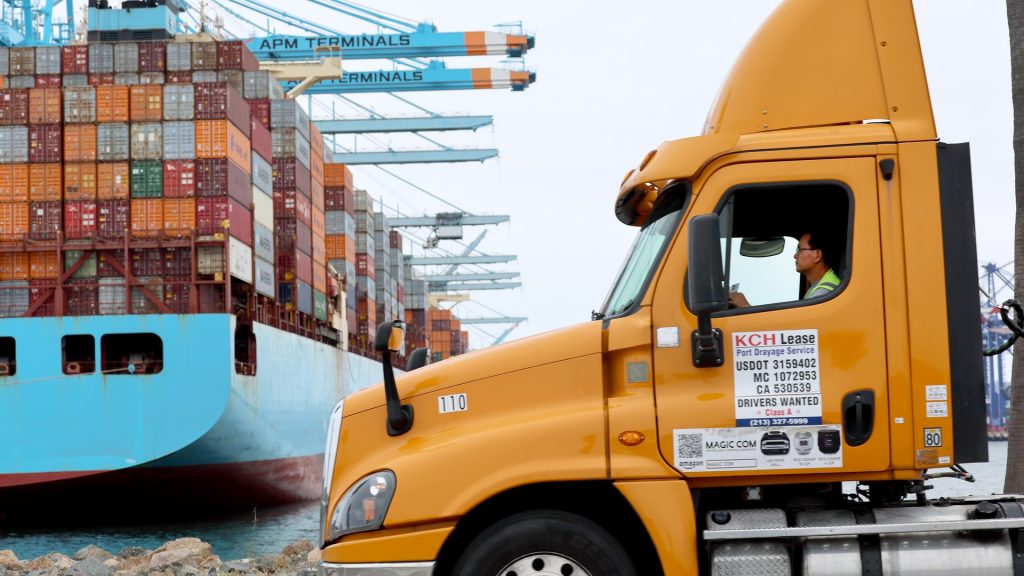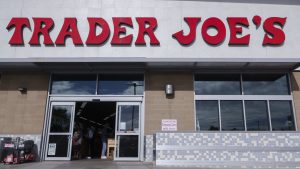Highway robbery: ‘Skyrocketing’ cargo theft costs $35 billion a year

Ever since goods were first hauled on wheels, someone has been trying to steal them. Once grudgingly accepted as an unavoidable cost of doing business, cargo theft has exploded into a serious threat to the security of the supply chain. More goods are being taken in more ways, driving up shipping costs that raise prices for consumers.
Truckers are still victims of brazen cargo crimes, like armed hijackings. But increasingly, cargo thieves are clever cybercriminals adept at stealing before the loss is recorded, let alone reported. The threat dynamic that now bedevils shippers and truckers: While “simple” thefts of entire loaded trailers or pilferage from trailers continue as always, a new wave of fraud is steeply driving up “non-delivery thefts.”
“Cargo theft is costing the supply chain up to $35 billion annually, and the prevalence of this crime is skyrocketing,” Bob Costello, chief economist, American Trucking Associations (ATA), told SAN.
He said that “strategic theft,” defined as involving deception or fraud, has risen 1,500% since the first quarter of 2021 — and the average value of the goods stolen per theft is now over $200,000.
“A wide range of products are in the crosshairs of thieves, with top targets ranging from electronics and apparel to food and medicine,” Costello said. “These items can be hard to track, easily transported and quickly resold. The financial losses are not limited to the theft of the stolen goods. These crimes also increase operational costs for motor carriers through delivery disruptions, elevated insurance rates and added security measures. The costs filter down through the economy, fueling price inflation for consumers.”
What’s behind the ‘record-breaking’ increase in cargo theft?
Strategic cargo theft — complex, nationwide and primarily the handiwork of organized crime groups — involves various sneaky techniques.
Three of the most common are: fictitious pickups, in which thieves pose as legitimate motor carriers and arrive at pickup locations with fake or forged bills of lading and convincing uniforms to take the cargo; double brokering, which includes the unauthorized transfer of a load to another motor carrier without the shipper’s consent, and ranges from simple handoffs to sophisticated operations using forged carrier identities and spoofed GPS data; and identity theft or credential fraud, in which thieves use stolen motor carrier credentials or create fake trucking companies with fraudulent licensing, USDOT numbers and operating authority to secure loads under false pretenses.
Keith Lewis, vice president of operations at Verisk CargoNet, which helps prevent, track and recover stolen freight through shared data intelligence, told SAN that his company has observed “record-breaking cargo theft activity across the U.S. and Canada.” Thefts hit an unprecedented level in 2024, with 3,625 reported incidents—marking a 27% jump from 2023. What’s more, the estimated average value per theft soared to $202,364, up from $187,895 in 2023.
Verisk CargoNet is pushing for the adoption of the electronic form of the bill of lading (BOL), which outlines the shipment of goods.
“With an e-BOL, the driver signs the bill, and when he hits ‘enter,’ it’s automatically transmitted for confirmation,” Lewis told SAN. “Then the consignee knows — even before the truck gets there — everything about the load, including how many cases or pallets it contains.”
Sending this data securely makes it harder for criminals to get their hands on the goods.
“The e-BOL lets us see what the trailer looked like when it got loaded and when it’s delivered,” Lewis said. “And if it doesn’t match up, we’re going to hold the truck driver there and call law enforcement.”

What kinds of goods do cargo thieves target?
Some things never change. And some things change on a dime.
“Hijacking the whole trailer still goes on,” said Joe Ohr, chief operating officer with the National Motor Freight Traffic Association (NMFTA), a nonprofit trade association that sets freight classification, carrier codes and shipping standards. “But now, theft is a lot more targeted and high-tech. Typically, thieves know what’s inside a trailer or shipping container. We’ve heard of them using drones to find their targets. They steal stuff off inbound container ships in a port and take it off railcars.”
As for what NMFTA calls cyber-enabled cargo theft, Ohr said that “back in the day, you’d hear about cigarettes and electronics being high value. Now, we’re talking about a range of goods that are hard to track and easy to move.”
Think medical supplies, energy drinks and sneakers, he told SAN.
“When you buy your sneakers, you’re paying more because of cargo theft,” Ohr said. “There’s no serial number on a can of Red Bull. They can take those by the load and sell them fast. A lot of this stuff ends up at flea markets and the like. One of the most recent ones we’ve seen is cashews. There’s over $1 million of cashews reported stolen.”
Unbiased. Straight Facts.TM
Cargo thefts marked a 27% jump last year, with 3,625 incidents. The value of those thefts also increased, rising from $187,895 in 2023 to $202,364 in 2024.

It may be challenging for consumers to understand how the high cost of cargo theft gets baked into individual purchases. But certain strategic thefts can pack an immediate, costly punch.
“Just-in-time manufacturers like car makers keep costs down by keeping physical inventories low in their plants,” said Verisk CargoNet’s Lewis. “But if cargo headed to them is stolen, it can fully disrupt plant operations. Assembly lines may have to be shut down, and their costs are measured in seconds. If one goes down for 45 seconds, the cost becomes $50,000 a second. That’s a significant cost nobody wants to incur.”
How can we stop cargo theft?
“Ultimately, the only way to bend the trajectory [of cargo theft] is to pursue a public policy solution,” said ATA’s Costello.
To that end, trucking’s largest lobby has endorsed the Combating Organized Retail Crime Act.
“This bipartisan legislation would increase coordination by enhancing legal frameworks, improving enforcement capabilities, and fostering greater cooperation among federal, state and local agencies,” Costello explained.
The expert consensus on what consumers can do is to say something when they see something.
“You know, if you see somebody walking around a truck stop doing something that looks unusual, definitely report it,” Ohr told SAN. “Because we’re all paying a high price for these crimes.”
The post Highway robbery: ‘Skyrocketing’ cargo theft costs $35 billion a year appeared first on Straight Arrow News.





